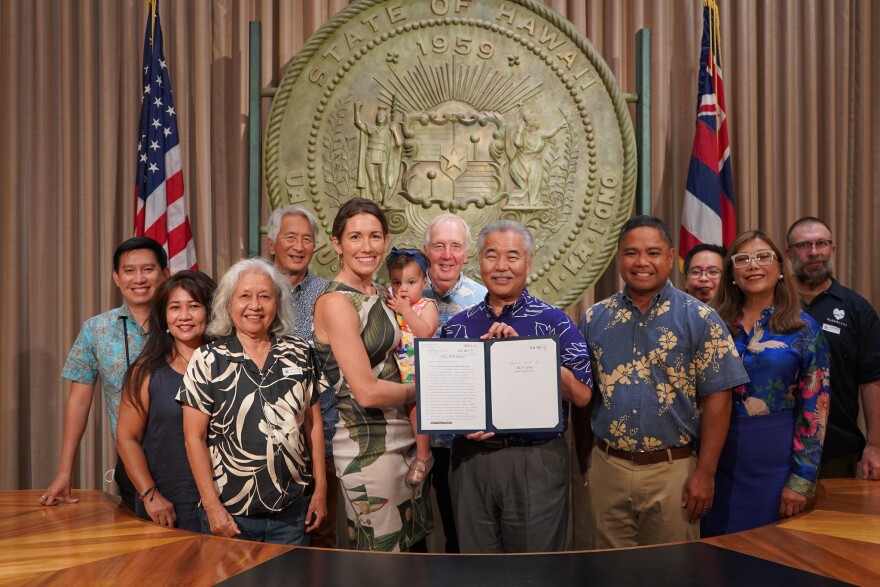Agnes Malate immigrated from the Philippines to Hawaiʻi when she was 7 years old. She could only say three things in English.
“I only knew yes, no and what is your name,” she said. “I would have to stand in front of the class, and it’s sharing time. I didn’t know what to share. I didn’t know what was happening. So, I’d just be standing there trying not to cry.”
Malate said those experiences fueled her passion to help others like her. She is part of a group of community leaders and legislators that pushed the state to restore funding for immigrant resource centers. They say these centers provide critical services to help immigrants settle into a new country.
“When you're in the situation where I was in … you really understand what it's like, and I had forgotten that,” she said. “You sometimes forget that because you're in an environment where … it's become second nature to those of us who speak English. But it really is a struggle for many who do not have that comprehension.”
A bill introduced by the Filipino Caucus and signed into law earlier this month by Gov. David Ige allocated $1 million to the state Department of Labor and Industrial Relations Office of Community Services to restore the centers.
Funding for the program had been cut several years ago. And Jovanie Dela Cruz, executive director of the office, which serves immigrants, refugees and lower-income families, said they haven’t been able to supplement the centers.
Dela Cruz immigrated to Hawaiʻi from the Philippines 20 years ago. As a 14-year-old, he remembers helping his parents fill out job applications and medical forms.
His office plans to contract with nonprofits to provide the services directly, he said. Services include outreach to inform immigrants of programs available, individualized support plans and interpretation. The goal is to have these centers up and running in every county by the end of this year.
“The programs that we have in the office, both state and federally funded programs, are aimed to serve these populations,” he said. “The idea is to help them become economically self-sustainable. We pride ourselves as a welcoming community to immigrants across the United States, so again, this is in tune with that spirit of aloha.”
In the islands, immigrants comprise nearly 20% of the population, as well as about 40% of agricultural workers, 33% of tourism and hospitality workers, and 23% of health care workers.
But many live at or below the federal poverty line and don’t have health insurance.
A 2021 working group report prepared by the state Department of Labor and Industrial Relations also identified critical issues impacting immigrants, including a lack of government programs and funding for language access, legal assistance, interpreters and translators.
Amy Agbayani, chair of the Hawaiʻi Friends of Civil Rights, also pointed out that language access is mandated by law.
Agbayani, a retired administrator of student diversity programs at the University of Hawaiʻi at Mānoa, immigrated to the islands from the Philippines nearly 60 years ago to study at the East-West Center. She said she spoke fluent English, but that there is a need to have translated documents and other services to help immigrants make the transition to a new place.
“Nearly every immigrant group faces a lot of barriers,” she said. “And they also are unfamiliar with the laws and culture and institutions. And they do face discrimination and other hardships related to often times having lower-income jobs.”
Liza Ryan Gill, coordinator of the Hawaiʻi Coalition for Immigrant Rights, which helped to spearhead the community effort to get the bill passed, said these services need to be embedded in everything we do. She pointed out that the need for these programs was heightened during the pandemic.
“You cannot wait until an emergency like COVID happens,” she said. “You need to build those inroads into these communities before they're absolutely necessary and you're trying to figure out how to get critical information to someone. We want to see both the state and cities and counties really step up and embrace their kuleana in this area.”






